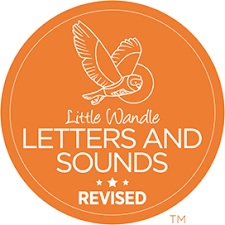Reading
At Hadrian we have a strong focus on reading which is at the centre of the curriculum, and make it an absolute priority that children learn to love books and reading.
Reading is a key life skill and every child can learn to read with the right teaching and support.
We have a coherent whole-school strategy for promoting reading. Every class has a class novel which is read every day, with vocabulary and comprehension work ensuring engagement, pleasure and understanding. These books are set at a challenging level as research shows that simply reading challenging, complex novels aloud and at a fast pace in each lesson repositions ‘poorer readers’ as ‘good’ readers, giving them a more engaged uninterrupted reading experience over a sustained period, and the best progress is made when sticking points are addressed. Data also shows that teaching comprehension at the same time provides a more coherent faster read and better supports poorer readers by explicitly teaching inference, diagnosed students’ ‘sticking places’ mid‐text and also stretches the average/good readers.
We believe that poetry is also important to develop a love and understanding of reading. Every class studies poetry and learns to read it aloud with clarity and expression, taking time to savour the vocabulary and share it with the listener. Each week a different class shares a poem in assembly, presented as choral speaking. We also offer LAMDA classes to small groups. Preparation for the assemblies and exams helps the children to learn to communicate clearly and expressively, and develops concentration and memory skills.
We build daily time into the curriculum for all children to read independently, and also read regularly with an adult. Our school library is well stocked and our librarian talks regularly with the children to ensure we buy books which the children will enjoy and request.
In EYFS and KS1 children follow Little Wandle Letters and Sounds phonics and in KS2 every child joins the Accelerated Reader scheme which tracks children’s progress and directs them to books of the correct level for good progress. It provides good data for how well a student is growing in their reading abilities.
Parents also play their part to ensure the culture of reading that the school has developed extends into the home. Children are encouraged to read daily at home and rewarded each half term for reading regularly in their own time. These rewards include inflatable slides, magic shows and the children’s favourite- water fun in the summer term.
Phonics Policy
Details of our Phonics Policy can be found here.








